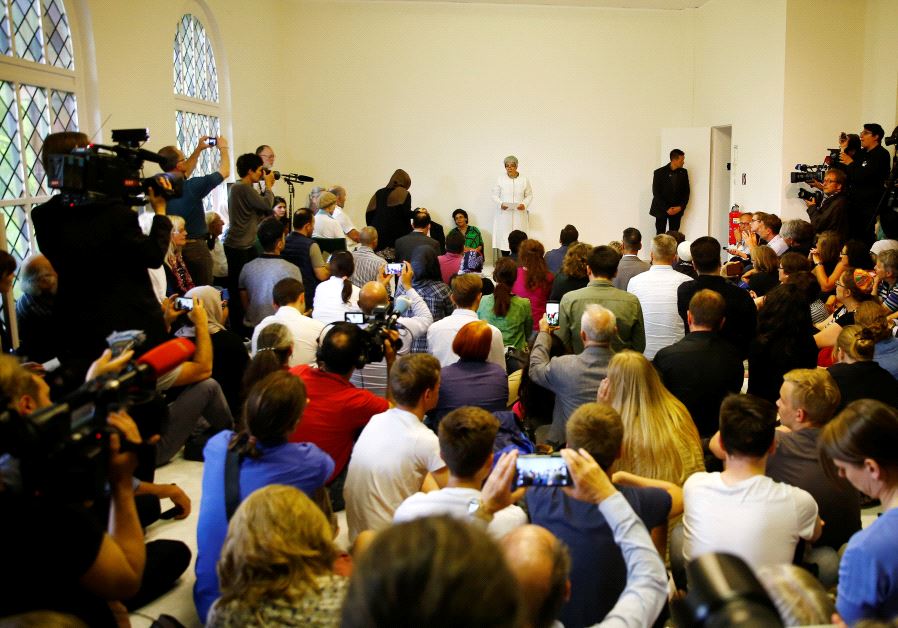Germany condemns Turkish criticism of new liberal mosque
Germany is home to an estimated 4 million people of Turkish origin.
 Seyran Ates, founder of the new liberal Ibn-Rushd-Goethe-Mosque, prays in Berlin(photo credit: HANNIBAL HANSCHKE/REUTERS)Updated:
Seyran Ates, founder of the new liberal Ibn-Rushd-Goethe-Mosque, prays in Berlin(photo credit: HANNIBAL HANSCHKE/REUTERS)Updated: